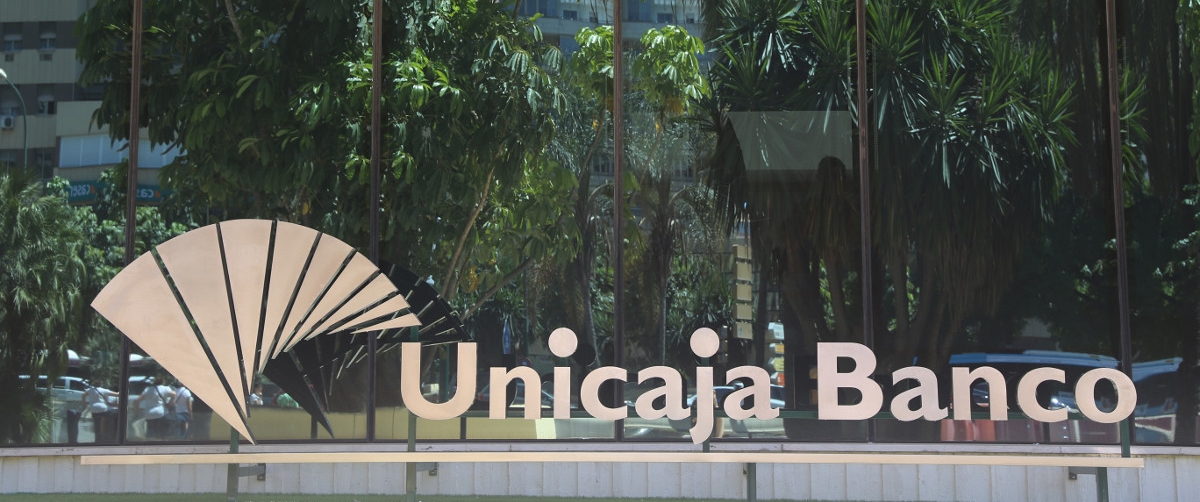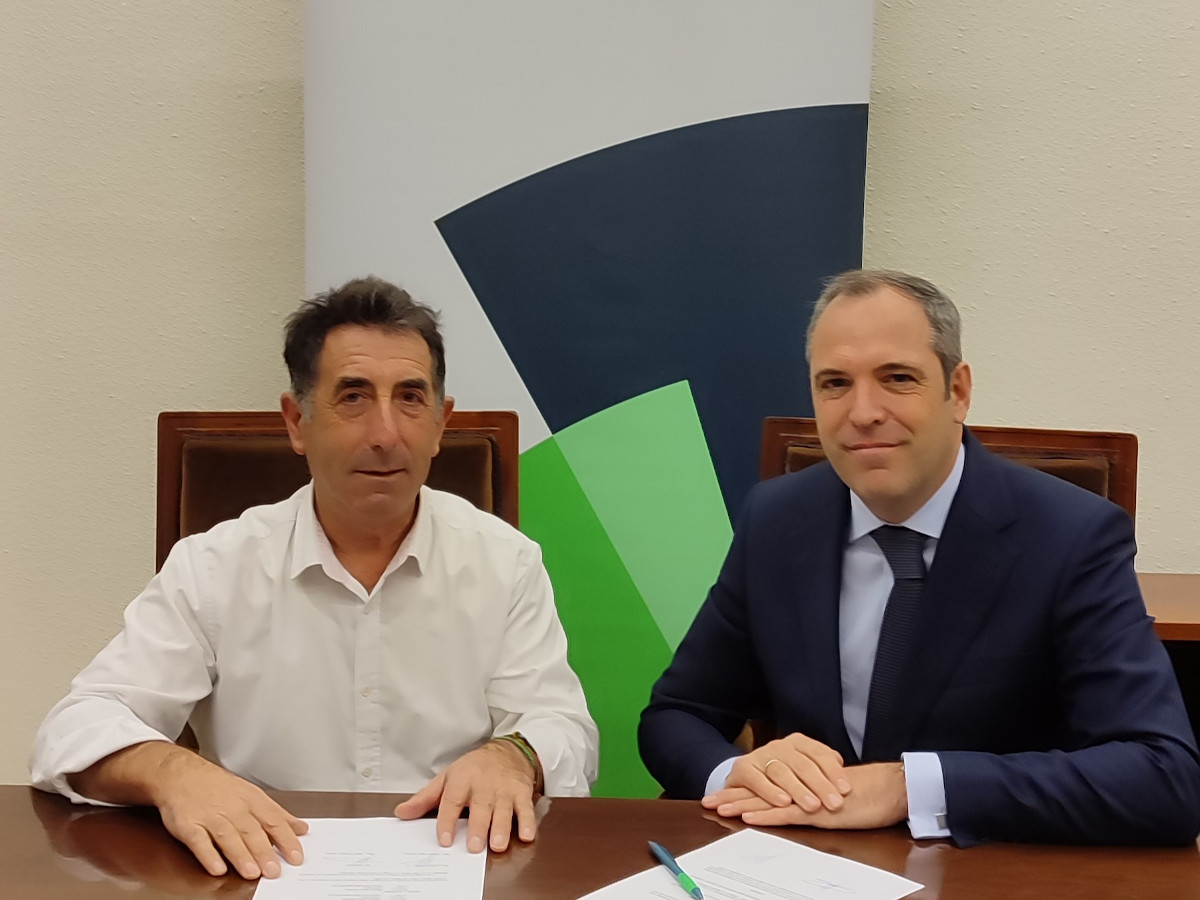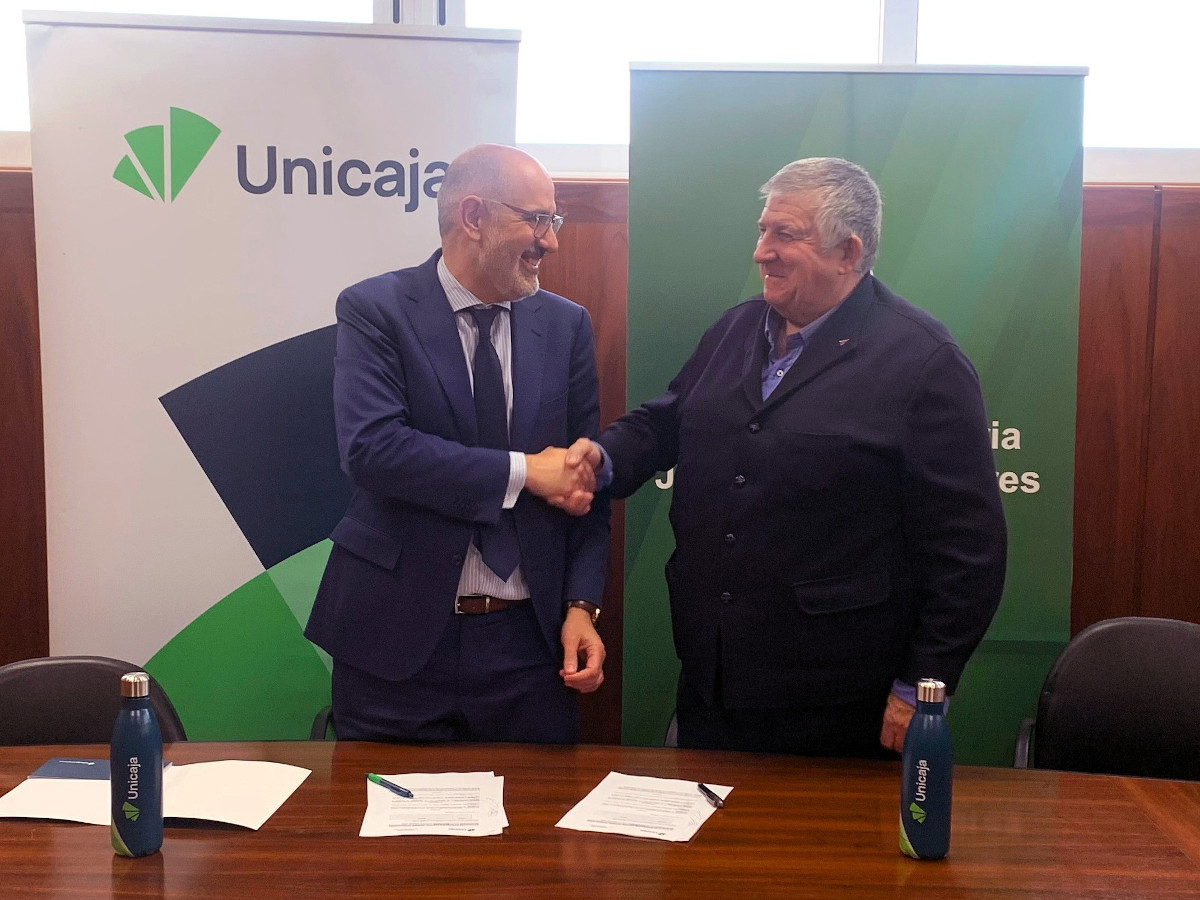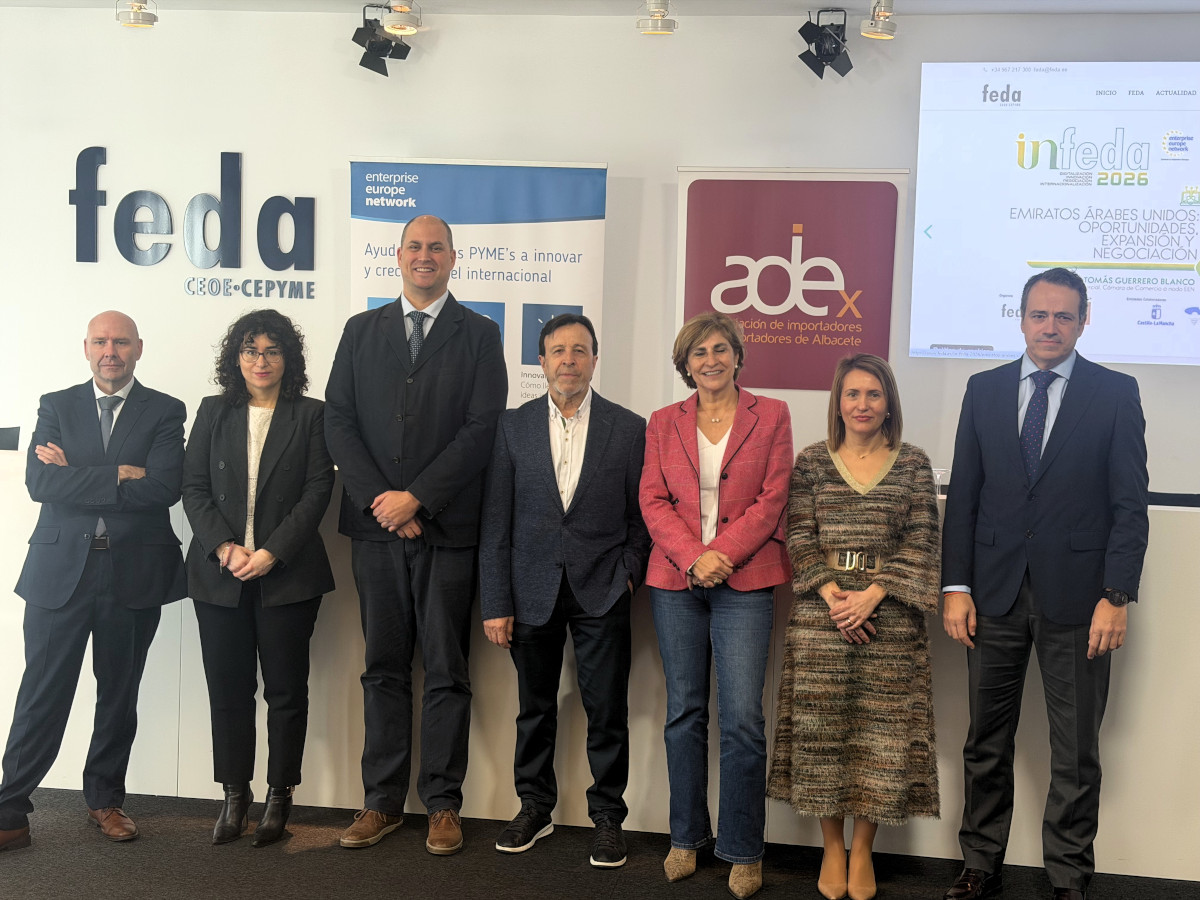Grupo Unicaja Banco posts, as of the end of 1Q 2020, a net profit of €46 million, after extraordinary provisioning of €25 million due to the Covid-19 crisis. Excluding the extraordinary provisions, the 1Q results would have reached €63 million, up 0.2% compared to the same period of the year 2019. The main keys of Unicaja Banco in the first quarter have been the capacity to generate results maintaining leadership in its core markets (Andalusia and Castilla y Leon), the growth in the activity, the increase of the aggregate of net interest income and fee income, the ongoing decrease in operating expenses, its credit quality, with a significant decrease in NPAs and the sound solvency and liquidity position.
Although the first quarter results, excluding the provisions made, show a limited impact of the economic context derived from the Covid-19 pandemic, this represents big challenges for the economy and the society. The institution will face them from a position of financial strength, resulting from its comfortable solvency and liquidity position, which will allow to continue providing support to individuals, businesses and institutions in the current context of difficulty and to respond to their needs.
At the end of the first quarter, the regulatory CET-1 ratio stands at 15.4% and the total capital at 16.8%, among the highest in the sector, with an excess of €1,072 million over the total capital SREP requirements, without considering the new limits granted by the ECB.
However, in view of the fast evolution of the economic and social context, Unicaja Banco announced at the General Meeting of Shareholders held on 29 April that it will submit its strategic plan to a review process, under the institution values, with the goal of adapting the said roadmap to the environment resulting from the health crisis.
In this new scenario, Unicaja Banco is giving support to the needs of individuals, businesses and freelancers, and especially to the most vulnerable, adopting flexible measures and solutions, taking part in the Government measures and promoting several action protocols to ensure service and to strengthen the protection and safety of customers and employees. So far, the institution has received more than 8,000 applications from freelancers and companies for loans with ICO guarantee, for approximate amount of €600 million, and more than 9,000 moratorium requests for mortgage and personal loans.
Results generation capacity
The difficult context of the end of the first quarter of the year, with the declaration of the state of alarm and the lockdown, has had so far a limited impact in the institution’s activity. However, the institution, following a criterion of prudence, has set aside insolvency funds for an amount of €25 million, to mitigate possible future impacts of the Covid-19. The net profit stands at €46 million, a result which, without the said extraordinary provisions, would have reached €63 million and would involve a ROE (return on equity) of 6.4%. The key highlights behind those results are the improvement in the net interest income plus fee income, the decrease in operating expenses within the framework of a policy to improve efficiency, and excluding the extraordinary provisions for Covid-19, reduced needs for provisions and impairments compared to the first quarter of 2019.
Net interest income plus fee income is up €2 million compared to the same period of the previous year, due to the boost of fee income, up 10.6%. There is also a general improvement in the contribution to results by shares in variable securities (dividends and results accounted for using the equity method), although the former fall due to the announcements of cancellation of dividend payments made an important number of companies due to the Covid-19 crisis. This negative evolution, derived from the economic moment, has been offset by an increase in the contribution of holding in companies according to the equity method¸ which, in March, has been less affected by the impact of the crisis. Furthermore, the trading income result has increased, with the realization of capital gains in the fixed income portfolio. Finally, there has been a decrease, in comparative terms, in other operating income and expenses, due to the goods results of the real estate activity registered in the first quarter of 2019.
On the other hand, operating expenses fall by 1%, continuing with the downward trend of previous quarters, a consequence of the plans to limit costs and restructuring that the institution is successfully implementing. Finally, impairments and other results grow by 88.6% compared with the same period of the previous year. With regard to that, it should be mentioned that, as it has been said before, extraordinary provisions of €25 million have been booked for possible insolvencies caused by the expected macroeconomic changes after the Covid-19 outbreak. Excluding that effect, the provisions and impairments in the quarter have been lower than those of the same period of the previous year. Focusing on the loan portfolio impairments, cost of risk reaches 48 bp, of which 13 bp correspond to ordinary impairments of the quarter, an amount comparable and similar to that of the first quarter of 2019. This evolution of ordinary credit impairments reflect the positive evolution of NPAs in the first quarter of the year.
Boost to the commercial activity: growth in credit and customer funds
The Group’s commercial activity, although impacted by the declaration of the state of alarm, isolating that effect, continues to grow. In this sense, the positive evolution of performing credit should be mentioned, up 1.7% in the year, with a significant growth of credit to public administrations and large companies. This increase in underpinned both by new lending and by the use of the credit account lines and other available facilities. Additionally, on-balance sheet customer funds also present a positive evolution, with a growth of 0.4% in the year, whereas the negative evolution of off-balance sheet funds responds mainly to the impact of market value of those instruments.
The lockdown has affected the evolution of new loan production, mainly to the activity of individuals, freelancers and SMEs. In that sense, it should be mentioned that, until the weekend of announcement of lockdown, new lending was growing compared to the same period of the previous year, by 20.3%. Finally, it has registered a negative evolution of 10.1% at the end of the quarter.
The mentioned decrease is focused on transactions of individuals, which until the declaration of the state of alarm were growing by 3% and finally fall by 14%, whereas, globally, transactions with companies have been less affected, as they grew practically at the same rate (around 16%) before and after the declaration of the state of alarm. However, the evolution within corporates has been irregular, with transactions with SMEs resulting affected. These were growing by 12.4% before the lockdown and finally fall by 2.4%.
The volume of customer funds managed by the Group (without valuation adjustments) reached €54,895 million at the end 1Q2020, of which €50,107 million are retail customer funds. Of those, on-balance sheet funds reach €38,180 million and grow in the year (+0.4%), boosted, one more quarter, by the growth in sight deposits (+0.5%) and by the positive contribution of public administrations (+4.6%). Off-balance sheet funds, however, have been affected by the Covid-19 crisis and fall by 7.3%, with 75% of the said evolution caused mainly by the impact of falls in markets.
Ongoing fall in NPAs, with high coverage
The sustained reduction of NPA (NPL plus foreclosed real estate assets) has allowed Unicaja Banco to reduce it gross exposure by €1,009 million (-29.1%) over the last twelve months, with decreases of 27.2% in NPLs and of 31.1% in foreclosed assets. The Group’s balance of NPLs, at the end of 1Q, fell to €1,334 million and that of foreclosed assets reached €1,130 million. The fall in NPLs results in a decrease in the NPL ratio of 1.7 p.p. in the last twelve months, down to 4.6%.
Also in the quarter, and despite the adverse scenario, NPAs fall by 0.3%
It is important to remark that these volumes of decrease in NPAs have not had a negative impact on the coverage levels, but have increased them, even without considering the provisions due to Covid-19. If the provisioning effort is also considered, NPA coverage is reinforced in 2 pp in the year, reaching 56%, one of the highest in the sector. The coverage of foreclosed assets stands at 63% at the end of 1Q2020.
So, the balance of NPAs, net of provisions, stood at €1,009 million, what represents 1.8% of the Group’s total assets as at the end of the first quarter of 2020, with a 0.9 pp decreased over the last 12 months.
Strong solvency levels and comfortable liquidity
In terms of solvency, at the end of the first quarter of 2020, Grupo Unicaja Banco has improved its solvency, having a CET1 ratio of 15.4%, and a total capital ratio of 16.8%, among the highest in the sector and with a year-on-year increase of 0.5 p.p. and 1.7 p.p. respectively. These capital ratios are in excess of the SREP (Supervisory Review and Evaluation Process) total capital requirements of €1,072 million, without considering the new limits granted by the ECB.
In fully loaded terms (once the transitional period of the solvency regulations has expired-in 2023-), Unicaja Banco has a CET1 ratio of 14.1% and a total capital ratio of 15.6%. This represents a year-on-year increase of 0.8 p.p. in the CET1 ratio and of 2.1 p.p. in the total capital ratio.
The positive levels of coverage, solvency and balance sheet quality are also reflected in a further improvement of the Texas ratio (indicator measuring the percentage of NPLs and foreclosed assets over TBV plus NPL and foreclosed assets provisions). This ratio improved to 45.9%, after a y-o-y decrease of 14.9 p.p.
Unicaja Banco maintains solid and excellent liquidity positions, as well as a high degree of financial autonomy. In this sense, the available liquid assets (public debt mainly) and discountable at the ECB, net of the used assets, amount to €13,072 million as at the end of March 2020, representing 23.5% of the Group’s total balance sheet. Likewise, customer funds with which the company finances itself exceed largely its lending, as reflected by the loan to deposit (LTD) ratio, which stands at 72.2%. Finally, the regulatory LCR ratio, which measures the volume of available liquid assets over net cash outflows over a 30-days period, stands in March at 335%, equivalent to more than three times the regulatory limit, set in 100%:
The existing capital and liquidity excess place Unicaja in a privileged position to play a significant role to cover the many funding needs that the resolution of the economic consequences of the pandemic is going to require.
Strategic and Transformation Plan and boost to digital banking
During 1Q2020 Unicaja Banco has begun the development and implementation of its Strategic and Transformation Plan 2020-2022, which includes transformation and commercial dynamism plans designed with focus on the customer.
Within the framework of the transformation plan in force, at the end of the first quarter of 2020, the number of digital customers (web and app) represents 51% of the total. In that period, of the total of financial transactions and customer consults, in addition to digital channels (52%), 21% were made through PoSTs, 21% at branches and 6% in ATMs, with a higher weight of digital transactions especially in March, both through web and app, driven by the lockdown due to the Covid-19.
Since March 2020, the mobile apps (Unicaja Móvil and Unipay) are available for download from Huawei AppGallery, available before for other devices.
Support to individuals, freelancers and business to face Covid-19
Due to the crisis generated by the coronavirus global pandemic and the consequent declaration of the state of alarm by the Government, since mid-March, Unicaja Banco has implemented a set of action and prevention protocols to ensure service to customers in an efficient and responsible manner. Also, the bank has set several permanent monitoring committees, within its business continuity plans, to respond to the circumstances and needs at any time.
In addition to ensuring the provision of the financial service -considered as essential in the state of alarm-, the safety and protection of customers and employees is also a priority for the institution. In that regard, the bank has extended the application of teleworking systems to most of its central services and, to a lesser extent, to branches, considering the characteristics of the services that they provide.
Furthermore, within the framework of its commitment to customers and society, Unicaja Banco is providing support and response to the needs of individuals, companies and freelancers, and especially to the most vulnerable, in order to contribute to mitigate the effects of the health crisis. In that sense, the bank takes part in the measures to provide liquidity and funding with the guarantee of the State, of the Junta de Andalucía or of specialized companies like Garántia or Iberaval, for companies and freelancers, and in the moratorium for mortgages and other loans. It also offers flexible payment and financing solutions and measures and it applies other measures such as exemptions or deferrals in the payment of rents for those in a situation of vulnerability. So far, the bank has received more than 8,000 applications from freelancers and businesses for loans with ICO guarantees, for an approximate amount of €600 million, and more than 9,000 moratorium requests for mortgage and personal loans.
Other initiatives to help those groups in a situation of vulnerability and to adapt to the needs of customers include the advance payment of unemployment benefits and pensions, debit withdrawal at no extra cost at any ATM from any bank, or the increase, from 20 to 50 euros, in the limit of contactless payment in contactless cards and devices. Holders of life and accident insurances also have the possibility to split the payment of insurance premiums at no cost.
Unicaja Banco supports shops with measures such as the temporary waiver of the maintenance fee for point-of-sale terminals (PoST) and facilities for telematic processing. Finally, the bank has informed its customers about recommendations on cybersecurity, due to the increase in cybercrime as a consequence of the health crisis.
Other actions in 2020
After the end of the quarter, it should be mentioned that Unicaja Banco held on 29 April its Annual General Meeting of Shareholders, where the 2019 annual accounts and the Board of Directors’ management were approved. In his speech, the Chairman informed of the measures adopted in the current situation of health crisis.
In an exercise of responsibility and in the best corporate interest in view of the coronavirus crisis, and following the recommendation issued by the European Central Bank (ECB) to the sector, the bank had withdrawn from the agenda of the General Meeting the proposals to distribute dividends charged to 2019 results and to reduce the share capital through the redemption of own shares within the framework of a buy-back programme. Those items are expected to be addressed in a new General Meeting of Shareholders to be held in October, taking into account the current circumstances. Also in the current situation, Unicaja Banco has decided to deactivate the variable remuneration schemes (bonus) set for the management.
CSR and sustainable banking
Unicaja Banco, in addition to the initiatives launched in relation to Covid-19 and mentioned above, has continued to develop actions in the exercise of its Corporate Social Responsibility (CSR) and sustainable banking in the first quarter of 2020, such as:
(i) The bank has confirmed its participation in the voluntary exercise on climate risk of the European Banking Authority. This exercise will provide a better understanding of the banking system vulnerabilities against climate risk, resulting in a first estimate of the exposure of European banks to sectors which could be affected by the transition to a more environmentally sustainaible economic model.
(ii) Additionally, the bank has enabled special financing facilities for those affected (individuals, businesses and farmers) by adverse weather conditions occurred during this period in some of its core regions (Malaga and Almeria), as it has made before.
Finally, due to the health crisis, Unicaja Banco has carried out, within the framework of its CSR, charity actions such as collaboration in the distribution by food banks, as well as donations of toys to children in foster homes and of tablets to several care homes, to respond the needs of families in a risk of social exclusion.



